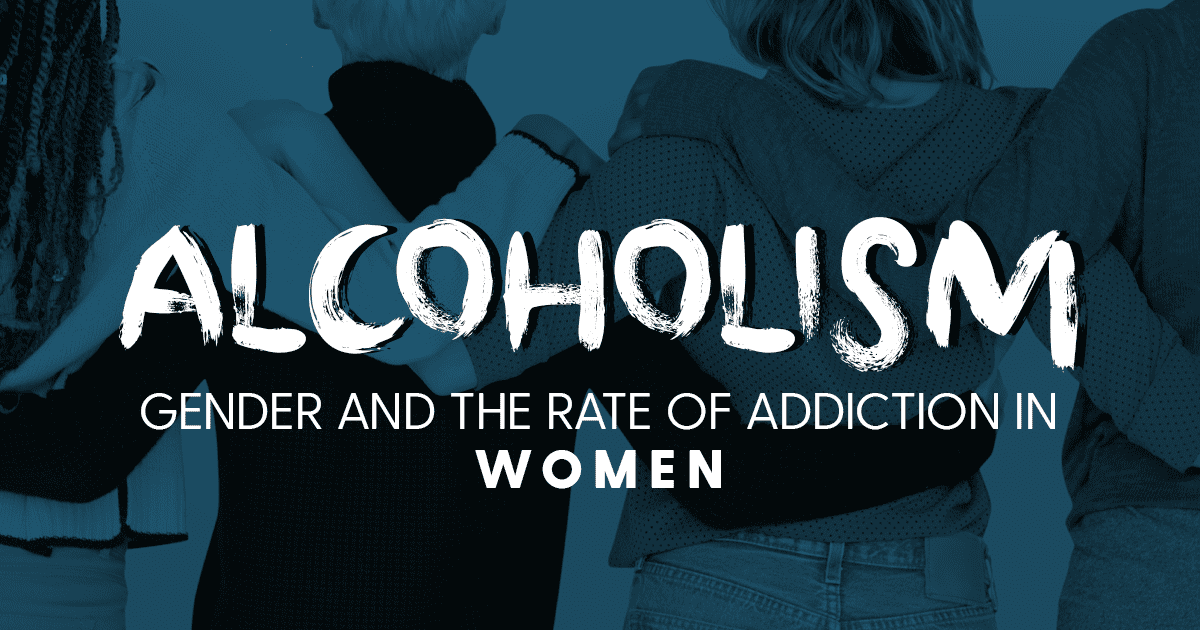
Until the late 1990s, almost all clinical studies on drug addiction in the United States were only done on men; no consideration was given to the differences between gender or how drugs may affect each differently. Advanced research in recent years shows that addiction in women has different, and often far worse, effects than in men. These consequences are much more exaggerated for women who are pregnant and the developing child.
Science didn’t discover most of the gender-based differences in addiction’s impacts on the body until recent decades. Advanced research shows that addiction affects women differently and often far worse than men. These consequences are much more significant for women who are pregnant and the effects on the developing child.
Addiction in Women
Addiction to substances such as heroin and alcohol affects women differently than men. Men and women respond differently to addiction and drug abuse. The differences between addiction in women suffering from addiction arise from biological and sociological differences. Many researchers now explain gender differences between the two due to society’s impact (such as child care responsibilities, addiction stigma, relationship dynamics, etc.).
There are also biological differences between men and women, revolving primarily around testosterone and estrogen production and average body size and composition, which cause substances to affect the body adversely.
Does Alcohol Affect Men and Women Differently?
According to the National Institute of Alcohol Addiction, “Women are more vulnerable than men to alcohol-related organ damage and trauma, and tend to develop alcohol addiction in much less time.”
In today’s age of stress and anxiety, people often tend to self-medicate with drugs and alcohol for their mental disorders to find an escape from reality. Research shows that women’s addiction is often related to controlling emotional pain. Feeling stressed and fed up with the grind of daily life grind, some women resort to binge drinking to forget about their worries for a period of time.

Consequences of Alcohol Addiction in Women
Women report unique reasons for using drugs, including controlling weight, battling fatigue, coping with pain, and attempts to self-treat mental health problems. Scientists who study substance abuse have found that women may experience issues related to hormones, menstrual cycle, fertility, pregnancy, breastfeeding, and menopause.
At every stage of life, women quickly become dependent on Alcohol and drugs and suffer the consequences, including mental issues, damage to the brain and other organs, and fatal accidents. What’s most dangerous is the severe attack of alcohol addiction on pregnant women. The fetus suffers the tension created by Alcohol in the woman’s body and may permanently damage or have limited growth.
Women are more prone to the physical and emotional damages caused by addiction. Women addicts are more likely than men to develop liver infection and get addiction-related brain changes. Women addicts are also likely to get heart disease and strokes more than men. Besides, women are more likely than men to develop addictive hepatitis and to die from cirrhosis.
What is the Effective Treatment Strategies for Women?
With so many differences between how men and women experience and deal with addiction, it’s a wonder that so many treatment facilities aren’t gender-specific. Yet, it only makes sense that treating a disease that is so different for men and women that the treatment options aren’t different.
Unfortunately, people may feel ashamed of having an addiction because they have been told that it’s just something you need to get over, so they see themselves as unique and less than human when they can’t. This isn’t true.
Just as is the case with any other mental health issue, it takes much more than lectures, willpower, and other platitudes to conquer an addiction. When it comes to addiction in women, proper health care takes a professional treatment program and support groups of other women who can empathize with your experience.

Substance Abuse Treatment
If you have substance use disorders that affect your daily life, short or long term, consult one of our care coordinators.
Anchored Tides Recovery is a comprehensive dual-diagnosis enhanced Huntington Beach rehab program explicitly designed to treat addiction in women. Contact us today, and we can help you recover from alcohol addiction if you’re ready.































